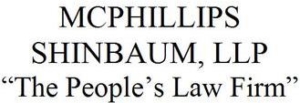DNA and You: What Are Your Rights if Arrested In Alabama?
In a narrow five to four decision by the United States Supreme Court, the Court ruled that collection of genetic material upon arrest is reasonable under the Fourth Amendment. Alabama already collects genetic material from those arrested on felony crimes. How does this affect you?
The Supreme Court case Maryland v King arose from the conviction of Alonzo Jay King, Jr. for a 2003 rape linked to him through collection of his genetic material on an unrelated offense. At issue was the question of whether the collection of DNA prior to conviction constituted an unreasonable search under the Fourth Amendment. Opinion from the Court included:
- For the majority, Justice Kennedy wrote taking and analyzing a cheek swab of the arrestee’s DNA is like fingerprinting and photographing a legitimate police booking procedure that is reasonable under the Fourth Amendment.
- For the dissenting minority, Judge Scalia, speaking from the bench, said he hoped one day the decision in the case would be repudiated, adding [t]oday’s judgment will, to be sure, have the beneficial effect of solving more crimes; then again, so would the taking of DNA samples from anyone who flies on an airplane (surely the Transportation Security Administration needs to know the “identity” of the flying public), applies for a driver’s license, or attends a public school.
Alabama is one of 28 states that already allow collection of genetic material upon arrest for certain sexual offenses and felony crimes. If you are arrested for a serious crime, your DNA will be collected and added to the growing body of biometric information gleaned willingly and unwillingly from people every day across the United States.
Inherent rights under the Fourth Amendment of the Constitution of the United States continue to erode. When you are arrested for any crime, seek experienced, reputable legal counsel.











